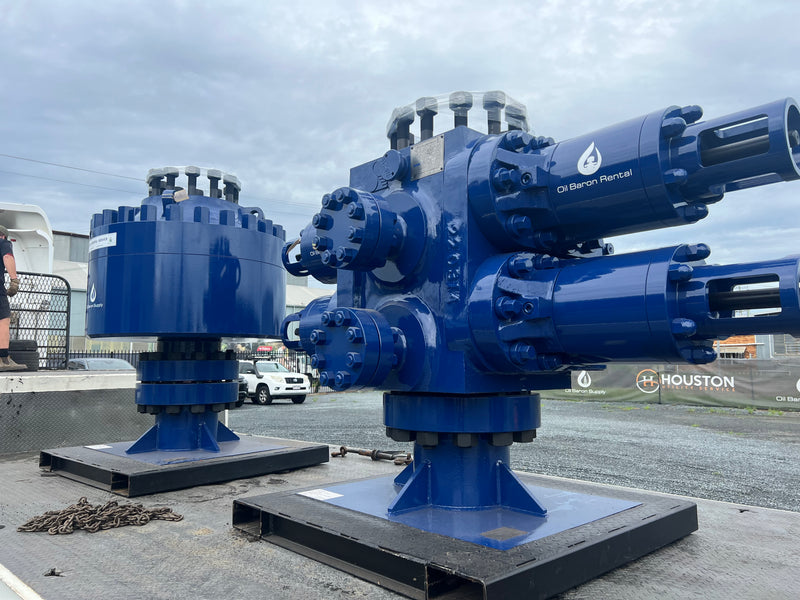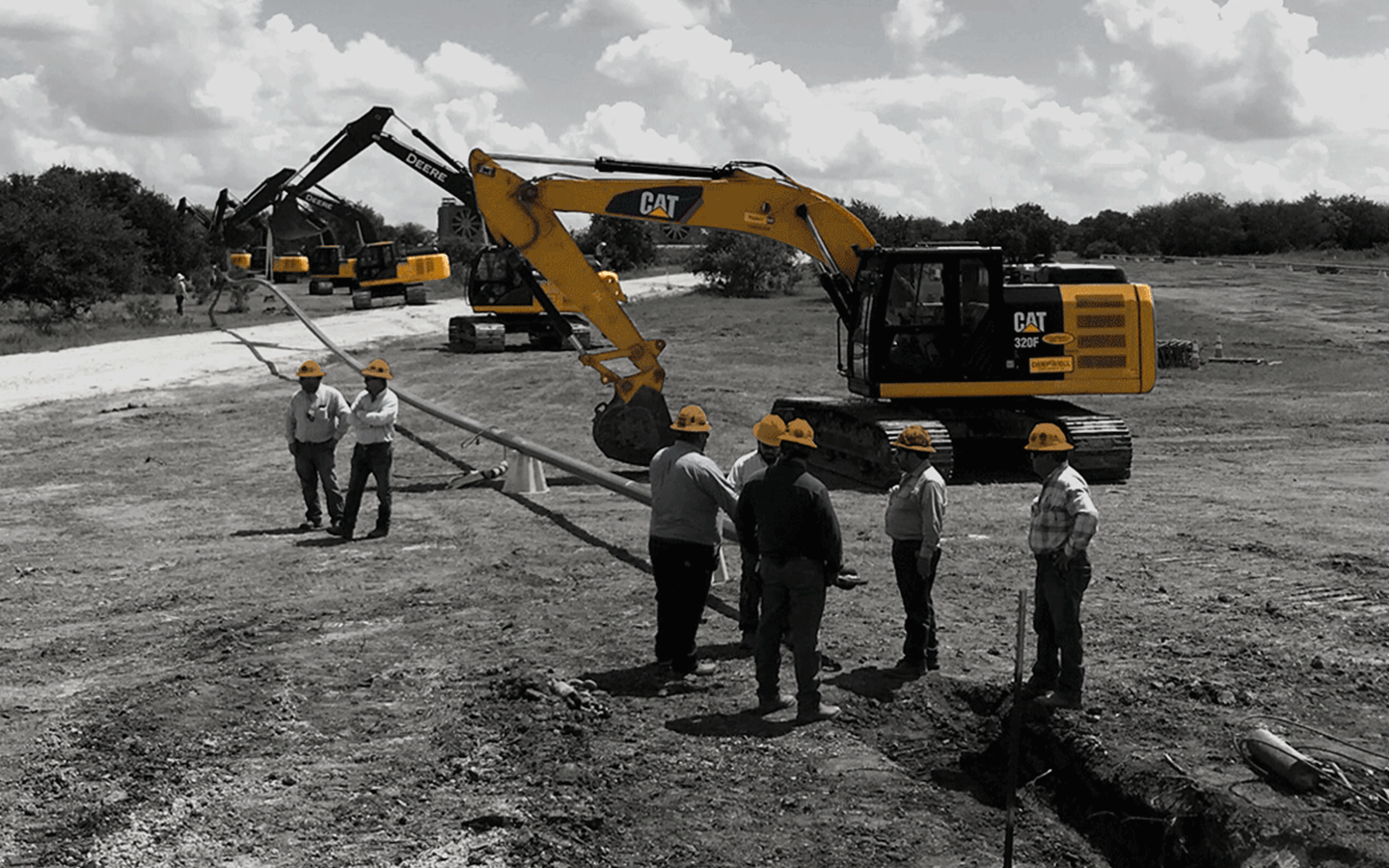Everything you should know about Superior Rentals reviews: what clients say
Wiki Article
A Comprehensive Guide to the Different Kinds of Oil Field Equipment and Pipeline Equipment Available
The oil and gas industry relies heavily on specific devices for reliable extraction and transportation. Numerous sorts of machinery, from drilling rigs to tank, play important duties in this intricate process. Each tool serves unique functions that add to total functional success. Recognizing these elements is necessary for any individual entailed in the market. As the sector advances, so too do the technologies that support it. What developments are on the horizon?
Drilling Rigs: The Foundation of Oil Exploration
Drilling rigs offer as the vital equipment in the domain of oil expedition, enabling business to accessibility hydrocarbon reserves hidden deep beneath the Earth's surface. These rigs are available in different kinds, including land rigs, offshore rigs, and mobile systems, each made to operate in specific settings. Equipped with sophisticated modern technology, drilling rigs can penetrate geological developments with accuracy, ensuring reliable resource extraction. The architectural honesty and operational abilities of these rigs are essential, as they should stand up to severe problems and substantial stress. Moreover, the option of a drilling gear influences the overall task cost and timeline, making it a crucial factor to consider for oil firms looking for to maximize their expedition initiatives and optimize performance in their procedures.Pumps: Essential for Liquid Activity
In the oil removal procedure, the duty of pumps is substantial, facilitating the activity of liquids throughout different stages of production. Pumps are essential for delivering petroleum, water, and various other fluids from below ground storage tanks to the surface area and after that with pipelines to refineries. They come in numerous kinds, consisting of centrifugal, favorable variation, and submersible pumps, each serving specific functions based upon the liquid features and functional demands. Centrifugal pumps are generally made use of for their performance in high-flow applications, while favorable displacement pumps master taking care of viscous fluids. The choice of pump effects total effectiveness, functional security, and maintenance expenses. Proper option and maintenance of pumps are important for maximizing production and minimizing downtime in oil area operations.Shutoffs: Controlling Flow and Pressure

Valves play a crucial role in managing the circulation and stress of liquids within oil areas and pipes. Various types of shutoffs offer distinct applications, each developed to accomplish specific functions essential for efficient operation - Superior Oilfield pipeline equipment rentals. Comprehending the qualities and uses of these valves is necessary for maximizing system performance and security
Kinds of Valves
Crucial components in oil area operations, valves play a crucial role in controlling the flow and pressure of liquids within pipes and tools. Various kinds of valves are utilized to meet the varied demands of oil and gas manufacturing. Typical types consist of gateway shutoffs, which supply a straight-line circulation and very little pressure decrease; globe valves, recognized for their strangling capacities; and round shutoffs, acknowledged for their quick on/off control. Additionally, check valves protect against heartburn, while butterfly shutoffs use a lightweight service for regulating flow. Each valve type is made with specific materials and configurations to endure the rough conditions frequently located in oil fields, ensuring reliability and performance in procedures. Comprehending these kinds is important for reliable system management.Valve Applications and Features
While different sorts of valves offer distinctive functions, their key applications focus on managing flow and pressure within oil and gas systems. Valves such as gateway, globe, and ball valves manage liquid motion, making sure peak efficiency and security. Gate shutoffs are frequently utilized for on/off control, supplying very little circulation resistance. Globe shutoffs, on the other hand, deal accurate circulation regulation, making them suitable for strangling applications. Round shutoffs are preferred for their quick operation and limited sealing capacities. On top of that, pressure safety valve are important for avoiding system overpressure, safeguarding equipment honesty. In general, the go now appropriate choice and application of valves improve functional performance, making certain the trusted transport of oil and gas with pipes and processing centers.Compressors: Enhancing Gas Transport
Compressors play a crucial function in the reliable transport of gas, ensuring that it moves efficiently via pipes over cross countries. These tools increase the pressure of all-natural gas, enabling it to overcome rubbing and altitude modifications within the pipeline system. Additionally, compressors facilitate the balancing of supply and demand, suiting changes in consumption and manufacturing prices. Various kinds of compressors are utilized in the market, consisting of centrifugal, reciprocating, and rotating screw compressors, each offering distinctive benefits based upon the functional demands. Normal upkeep of these compressors is necessary to maximize efficiency and minimize downtime, ultimately adding to a reliable gas transport network. Their critical feature highlights the relevance of compressors in the general oil and gas infrastructure.Storage Tanks: Safe and Effective Fluid Management
Reliable transportation of all-natural gas counts on various supporting systems, among which is the proper monitoring of tank. These containers play a vital role in securely consisting of fluids, ensuring that operational efficiency is maintained while decreasing ecological dangers. Created from resilient materials, they are developed to withstand high stress and destructive aspects. Effectively sized and purposefully situated, storage space tanks assist in the smooth flow of gas and various other fluids, stopping traffic jams in supply chains. Routine upkeep and tracking are critical to spot leaks or structural problems, advertising safety and conformity with regulative criteria. Inevitably, the reliable administration of concrete batching plant manufacturers storage space containers is important for the overall integrity and integrity of the oil and gas sector's liquid handling systems.
Pipeline Equipments: Framework for Transportation
Pipeline systems work as the foundation of the oil and gas industry, promoting the reliable transportation of hydrocarbons over huge distances. These systems consist of numerous parts, including pipelines, shutoffs, pumps, and compressors, all thoroughly developed to assure seamless flow. The materials made use of in pipeline construction, often steel or high-density polyethylene, are chosen for longevity and resistance to deterioration. Pipeline networks can span throughout land and water, linking production sites to refineries and distribution. In addition, progressed technology allows real-time monitoring of circulation rates and pressure levels, improving operational efficiency. The tactical positioning of these pipes minimizes environmental effect while taking full advantage of source availability, thereby playing a vital role in meeting energy demands worldwide.Security Equipment: Ensuring Employee and Environmental Management
The procedure of pipeline systems, while essential for power transport, also offers significant security difficulties for workers and the setting. Safety tools plays a significant role in mitigating these dangers. Individual safety equipment (PPE) such as safety helmets, handwear covers, and non-slip footwear safeguards employees from physical threats. Additionally, gas discovery systems check for leaks, making sure that dangerous materials do not present a hazard to employees or the bordering ecological community. Emergency shutdown systems are important for rapidly stopping operations during a situation, avoiding prospective calamities. Spill control materials, including absorbents and barriers, are basic for reducing ecological effect. On the whole, purchasing all-encompassing security devices is crucial for keeping functional stability and safeguarding both workers and the atmosphere in the oil and gas field.
Regularly Asked Inquiries
Just how Do I Choose the Right Oil Field Equipment for My Task?
Selecting the appropriate oil area devices includes assessing task specifications, budget plan constraints, and operational needs. Take into consideration variables such as gas pipe installation devices reliability, compatibility with existing systems, and the provider's credibility to assure peak performance and security.What Are the Upkeep Needs for Oil Field Equipment?
Maintenance needs for oil field equipment include routine assessments, lubrication, and prompt repair services. Operators should also stick to maker standards, display efficiency metrics, and warranty conformity with safety and security laws to boost durability and performance.
Exactly How Can I Make Certain Conformity With Environmental Rules?
To guarantee compliance with environmental regulations, companies should perform regular audits, execute ideal techniques, purchase training, maintain proper paperwork, and stay updated on legislation (Superior Rentals near me). Partnership with ecological companies can likewise improve adherence to policiesWhat Is the Average Life-span of Pipeline Equipment?
The ordinary lifespan of pipeline devices commonly ranges from 20 to half a century, depending on elements such as worldly high quality, ecological conditions, and upkeep practices. Routine examinations can greatly influence durability and functional effectiveness.Exactly how Do I Safely Move Oil Field Equipment to Remote Locations?
Transporting oil area tools to remote places calls for careful preparation, including path evaluation, safeguarding authorizations, utilizing appropriate lorries, and ensuring security procedures are adhered to. Appropriate training and communication among teams are vital for successful transport.Report this wiki page